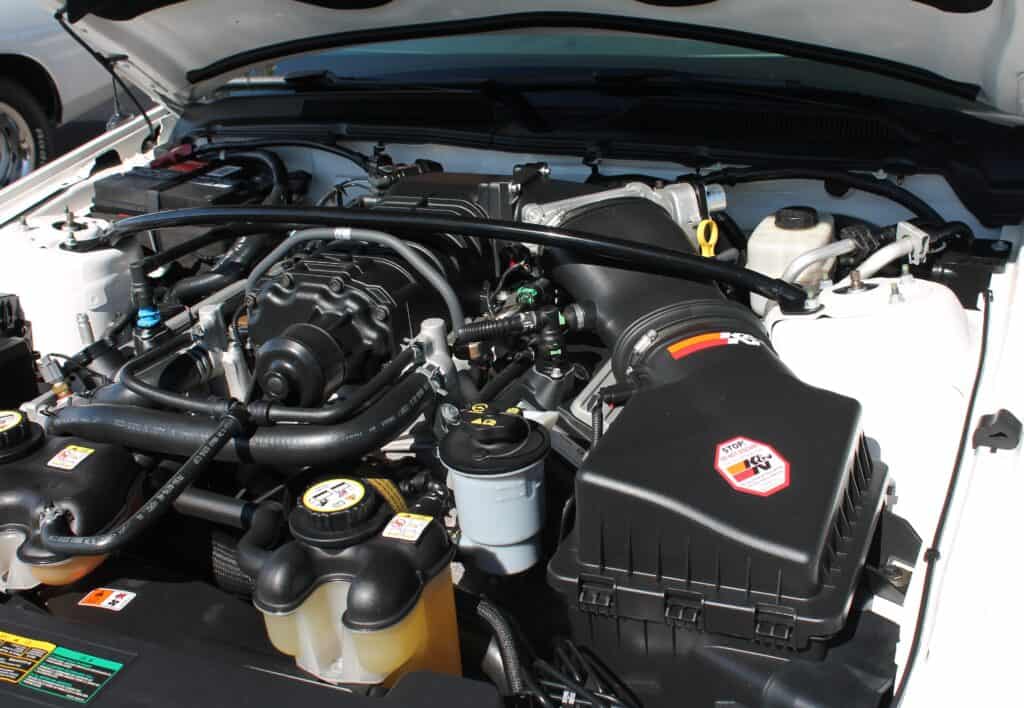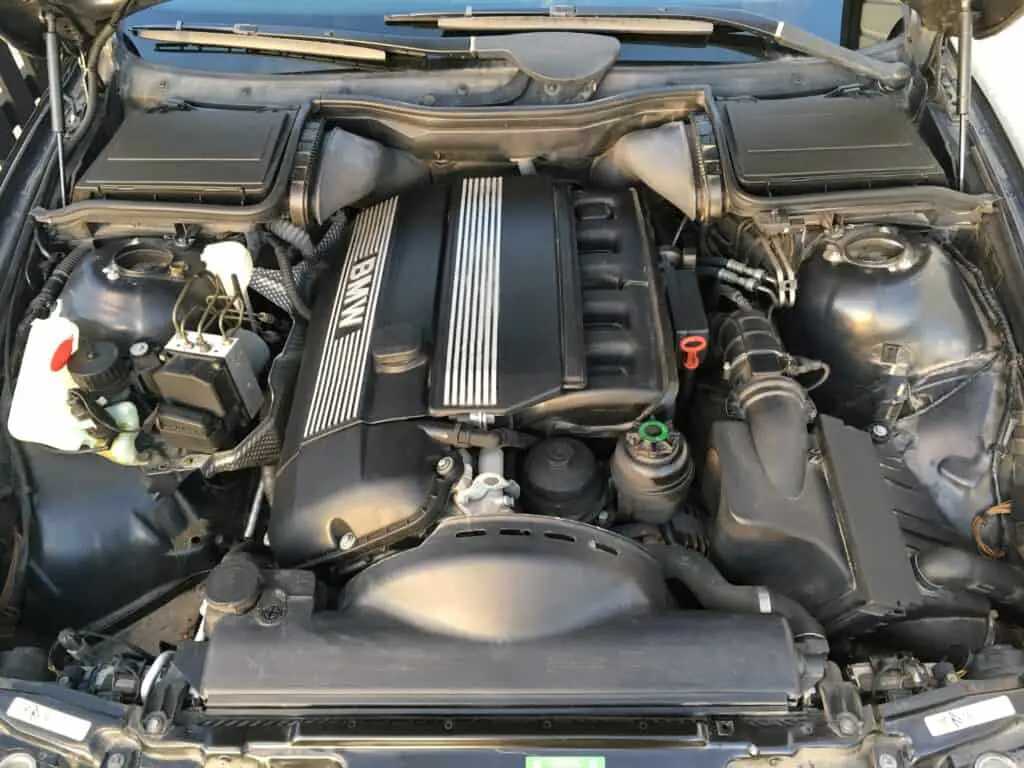As an Amazon Associate we earn from qualifying purchases.
Viscosity is the major factor that decides whether a particular engine oil stands out among others or not. And 15w40 and 20w50 have certain categorizations based on such similar aspects. For example, 15w40 has a viscosity rating of 15 and 40 for low and high-end temperatures, respectively.
And 20w50 oil has a viscosity rating of 20 and 50, respectively. These viscosities define their lubricating potential at cold and hot temperatures. Therefore, understanding the specifications to choose the best for your vehicle is quite important.
15w40 vs 20w50
Both of these engine oils are thick, thereby making them an ideal choice for high temperatures. So, if your heavy-duty vehicle maintains a high operating temperature or runs mainly in a high-temperature climate, these two oils are ideal options for you to consider.
But to choose the best, you need to ensure that you know about them in detail. Therefore, refer to this 15w40 vs 20w50 article to know about the detailed information of these two oils.
15w40 Specifications
15w40 is a preferable engine oil for fleet vehicles. Fleet vehicles are the ones that help transport goods in heavy load, from one place to another.

Also, it is mostly an ideal pick for buses and trucks that have CNG or LNG engines. The formulation for this engine oil 15w40 comes with high-quality base oils and superior additives.
In fact, the ash formulation aspect within this oil type is the sole reason for the nitration, thermal, and oxidation stability potential. As a result, it minimizes the ash deposits within the combustion chamber. This is what differs 15w40 from the 5w40.
The lubrication aspects of this engine oil also suppress the build-up of sludge and carbon within the components, which is similar to the 10w30. Therefore, irrespective of the vehicle’s operating condition, this engine oil offers cleanliness protection in all instances.
Furthermore, it is ideal for the engines that demand high-performance, or the lean-burn diesel engines, that use natural gas as fuels.
This oil meets all industrial standards on a strict note, as fleet vehicles need optimal and assured performance guarantees to avoid breakdowns or interruptions.
In addition, the internal blend of this engine oil helps it neutralize the nitrates and oxyacids for reducing the deposits. Moreover, it also comes with shear stability that suppresses the oil consumption needs, making it last longer, just like how 10w40 partially functions .
Along with that, 15w40 offers protection to cylinder liner scuff and the bearings. Furthermore, it comes with effective dispersancy that keeps the dirt, rust, corrosion, and sludge away from the engine components.
In addition to that, it also consists of Phosphorous and Zinc. These levels are low, which intends to enhance the life of the catalytic converter.
20w50 Specifications
20w50 is yet another efficient motor oil that provides high performance on priority. Although 20w40 is more fuel-efficient, 20w50 is ideal for almost all vehicles, thereby delivering protection to the engine and taking care of its cleanliness aspects.
Also, it is highly preferable for providing an easy start to the vehicles at cold temperatures and maintaining performance stability at high temperatures.
20w50 oil has numbers within its name that signify its viscosity rating. For example, the number 20 denotes the viscosity of this oil at low temperatures. And, the number 50 denotes the viscosity at high temperatures or operating temperatures.

Furthermore, the thickness of this oil determines its feasibility and use in heavy-duty vehicles. As it has good high and low-temperature properties, it is a suitable pick for vehicles operating in both conditions.
Usually, most fleet vehicles cover 1000 miles in a single stretch, under varying climates and conditions. Therefore, the engine oil needs to have the potential to adapt to the temperature variations and give optimal performance enhancements or cold startups.
When being compared to 15w50, 15w50 performs better at cold temperatures. Nevertheless, heavy-duty trucks, buses, and other highway fleets still demand the use of 20w50.
In fact, the formulation of this oil has the potential to suppress deposit formation. And, the anti-wear properties of this engine intend to offer protection for even the most sensitive engine components.
Therefore, it is best for vehicles that make use of LPG and CNG as fuel. But, in addition to that, it is also effective in the petrol engines that demand the use of API SL quality engine oils.
Similarities of 15w40 and 20w50
- Both of these engine oils fight the sludge-buildup and formation of corrosive deposits.
- Also, both 15w40 and 20w50 are thick engine oils that determine their use in heavy-duty vehicles.
- Both are ideal preferences for vehicles that demand high performance and operate mostly at high temperatures.
- The pour point for 15w40 and 20w50 is -30 degrees C.
Differences of 15w40 and 20w50
- The low-temperature viscosity of 15w40 motor oil is rated as 15, whereas 20w50 is 20.
- The high or operating temperature viscosity of 5w40 motor oil is rated as 40, whereas for 20w50, it is 50.
- The flashpoint for 15w40 is 237 degrees C, and for 20w50, it is 230 degrees C.
- The kinematic viscosity at 10 degrees Celsius for 15w40 is 14.9mm2/s, whereas, for 20w50, it is 19.0mm2/s.
Major Distinguishing Factor
- The viscosity index of 15w40 is 143, whereas, for 20w50, it is 141.
- And, the specific gravity of 15w40 is rated as 0.875. But, for 20w50, it is 0.88.

When to Use 15w40?
15w40 is an ideal pick for heavy-duty vehicles and gasoline engines that demand API SL, SJ, or SM grading. Ensure that your fleet vehicle is compatible with oil of such thickness before using it.
It is because not all trucks or buses are compatible with such thick oils. Also, it depends upon the load-bearing capability of the vehicle engine to decide the oil type. So, consider this factor!
When to Use 20w50?
20w50 is also a thick oil preferable for heavy-duty engines but is comparatively little less efficient in colder regions than 15w40.
Therefore, if your vehicle covers a vast distance in a single stretch with heavy loads in the form of goods or passengers, then a thick oil like 20w50 is an ideal pick. It is because long rides increase the temperature within the engine.
Final Verdict
Keep all the considerations in mind, and decide the one that suits your vehicle the best. The cost for 15w40 is somehow more than that of 20w50, which makes it another possible choosing factor.
Also, 15w40 might be better in terms of viscosity and performance, but both are interchangeable oils with almost similar efficacies. Therefore, cost and viscosity can be the final deciding factors for picking one of these two.

